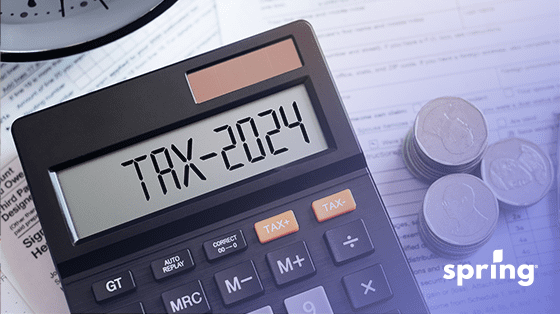The idea of a budget is to put all your income, expenses, and goals on paper to help you maintain financial stability and create a structure to reach your goals. Because the budgeting process is fluid you can make changes over time as your circumstances change.
What Does Budgeting Mean?
Making a budget essentially means taking an inventory of your income and dividing it into appropriate portions every month to meet your personal finance goals. The budgeting process can be different for everyone and the type of budget you create depends on the specific goals you are trying to meet.
Even though a budget is intended for the purposes of saving money, it can be a great tool just to keep track of your finances. Even if you don’t end up saving, in an emergency you are already aware of how much expendable income you bring in every month making it easier to come up with a plan to navigate through the situation.
Using a budget for the purpose of savings for your goals is a different process for everyone and is based on your specific need. For example, let’s say in 6 months you would like to go on vacation, but you currently have no money saved. By creating a budget, you would be able to allocate a certain amount of money per month to be put towards that trip.
Creating a budget can show you if you have the means to save that amount in 6 months to go on that vacation. It also breaks down how much you need to put away every month to meet your goals. For some people, a journal can be helpful in this process, a graph, or just written goals. However you choose to do it, a budget is a great tool to check in with your goals and make them a reality.
What is the Purpose of a Budget?
The purpose of a budget is to allow you to track your spending, dictate where your money goes, and control your financial future. By paying attention to your expenses, you are essentially maintaining control over your spending habits. breaking down how much you spend a month and on what, you can determine what is necessary and make more conscious decisions regarding your financial health.
From there you can determine an appropriate monthly budget, then you can decide where it is appropriate to spend money and what adaptations you can take to save money.
Advantages of Budgeting
There are many advantages and disadvantages to budgeting. Some advantages are paying off debt, having an emergency fund, planning for future purchases, limiting your costs, reducing financial stress, and setting limits on your spending.
Disadvantages of Budgeting
There can also be some disadvantages to budgeting. It can be very difficult to maintain the discipline of a budget. It can also be very easy to justify why that money needs to be spent elsewhere. Therefore, writing out a budget can be helpful. Seeing your goals on paper can help you to maintain the budget loan term and remind yourself why you created a budget in the first place.
The budgeting process looks a little different for everyone. The type of budget you create depends on your goals as well as the timeline you have given yourself to reach these goals. When you set a realistic timeline it can be easier to stick to the budget and reduce the temptation to spend the money that is set aside for savings or debt repayment.
How to Plan a Budget
When planning a budget there are a few things to consider. First: What are your goals? Why are you creating a budget and what will help you get there? Next, you want to consider how much income you are earning every month. Take a detailed inventory of your pay stubs, account balances, and spending habits. It can be helpful to make a list or spreadsheet while doing this, so you have a visual of your monthly expenses.
The next step is to look at these expenses and see if there is anything you can cut back, check if there is any unnecessary spending, and then calculate how much of that you could use to pay back debt, put into savings, or both. Keep in mind that saving and budgeting isn’t a race. Make sure to set realistic goals for yourself. The more manageable you keep your goals the more likely you are to maintain the changes. Trying to do too much too soon can be frustrating and lead to quitting.
Once the budget is started it is important to periodically check on it. Make sure the numbers are still adding up and adjust accordingly. If one month is slightly more difficult to manage than the rest, the budget is very flexible. Don’t forget that goals are just guidelines. Even if you don’t quite meet the goal you have set for yourself you have still made progress. Life happens, but actively participating in your financial future can help you be more prepared.
It is also important to remember that as your goals change your budget can too. For example, initially, your goal could have been to save for a down payment for a house. Now that you have reached that goal many factors change such as the amount you would like to save per month as well as your living expenses. This is a great time to revamp your budget and create new goals.
Why is Budgeting Important for Students?
If you are a student, it can sometimes be very difficult to pay for everything you need without taking a lot of student loans. Budgeting can be very helpful with this. Tuition is expensive and on top of that, you have books, health expenses, and living expenses.
Budgeting for these expenses can make a big difference in how much you need to borrow to complete your schooling. It can also help you learn to correctly budget for when you are no longer in school helping to decrease your overall debt. It can also assist in providing lower debt payments giving you more financial security. Starting early can take the sting out of student loans and allow you a head start on budgeting for your future.
Why is Budgeting Important for Families?
How do you know if budgeting is important for you? Creating a budget can be beneficial for everyone, especially for those who have families. When the household income is meant to cover more than one person it can be easier to lose track of spending habits. Not to mention, there can be added expenses such as childcare and extracurricular activities.
Adding things into the monthly budget can help you be mindful of mindless spending as well reduce the amount of debt your household incurs. It can also be helpful in an emergency situation. You never know when those are going to happen. Things like having to take your pet to the vet, or having to miss work can happen unexpectedly. Having tools to navigate these situations is important and budgeting plays a big part in that.
One option for starting to create your budget is to calculate what portion of your income is needed to cover the necessities and put the rest into a savings account for a later date. This can be tough to stick to since there is no money left over for extra and it isn’t for everyone. It can be very beneficial for someone who is looking to meet their financial goals in a short period of time.
Another option is to separate your money using various bank accounts to avoid the temptation to spend. This would allocate certain amounts monthly for bills, groceries, and savings without having to stress constantly over how much money is left for the month. Because most of the work is done for you this can be easier to stick to.
For most people, even thinking about the budgeting process can be a bit daunting. The first thing that pops into their mind is they will no longer be able to live their life the way they choose. This isn’t necessarily the case. Is that one way to budget? Definitely. That doesn’t mean it’s only way to budget. Budgeting doesn’t have to restrict your fun, just plan accordingly.
Have a majority of your income set aside for the mandatory expenses such as living costs, another portion for things such as extracurriculars or fun activities, and then another small portion into a savings account. This may require some cutbacks on your part. You just must decide what expenses you are able to live without and go from there. This decision process is different for everyone.
For example, someone who works late every day may not have enough time to cook dinner for themselves and keep take out within the budget, but they decide to replace their morning coffee with coffee from home. That small sacrifice of $3.00 – $5.00 a day can make a large difference over time. For someone else, it may make more sense for them to switch to transit every day instead of driving which would save money on gas and insurance.
Ultimately, it is whichever option is best for you and your lifestyle. Budgeting is not there to dictate how you live your life, it just allows you to have financial control. In reality, all of us should have an in depth understanding of our finances with or without a budget.
What Can You Learn from Budgeting?
Budgeting can be extremely difficult, but it also can teach you a lot about your financial health. Having control over where you spend your money can help you in many ways such as managing your debt payments, lowering your average credit card debt, having extra money on hand, and controlling your monthly budget. One eliminated expense per month can make a large overall difference. As you get used to the idea of limiting your expenses, making budget-savvy decisions will get easier.
Overall, the more control you have over your income and monthly budget, the more control you have over your life. Financial responsibility also helps you distinguish necessities and luxuries. it can be really difficult not to impulse buy but before you make these purchases, think to yourself: Is this something I need immediately? Am I able to get by without it? Asking yourself questions like this can make a big difference when trying to get a handle on your finances.
Conclusion
Budgeting is a helpful process in managing your finances and tracking your financial health. Creating a budget can provide in-depth knowledge regarding your finances and allows you to control your spending habits. It can be very overwhelming to keep up on your finances but simple habits such as automatic bill payments, or sorting your income into categories on pay day can make this much less stressful.
Try and make it a part of your weekly/ monthly routine instead of something you only tackle once in a while. These small changes will make a large difference in how you spend your money as well as how you balance your budget.








